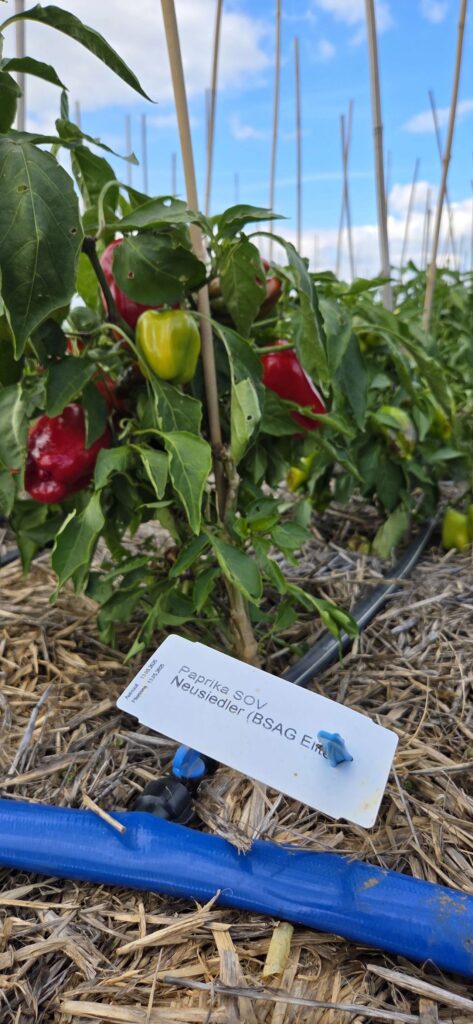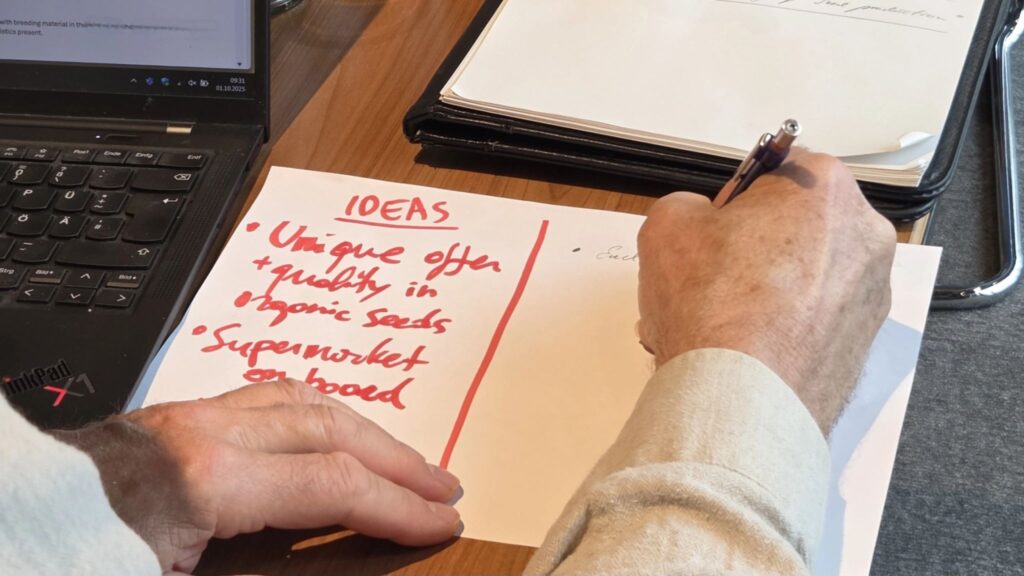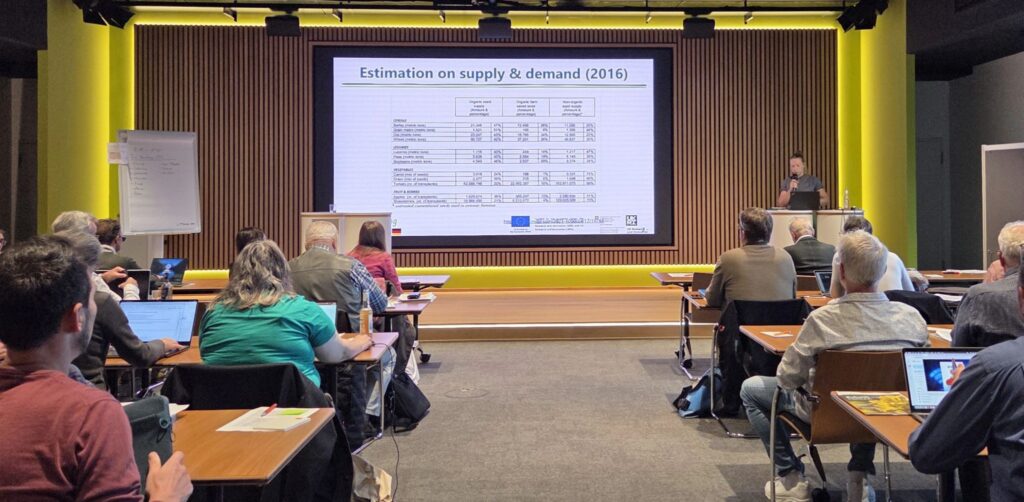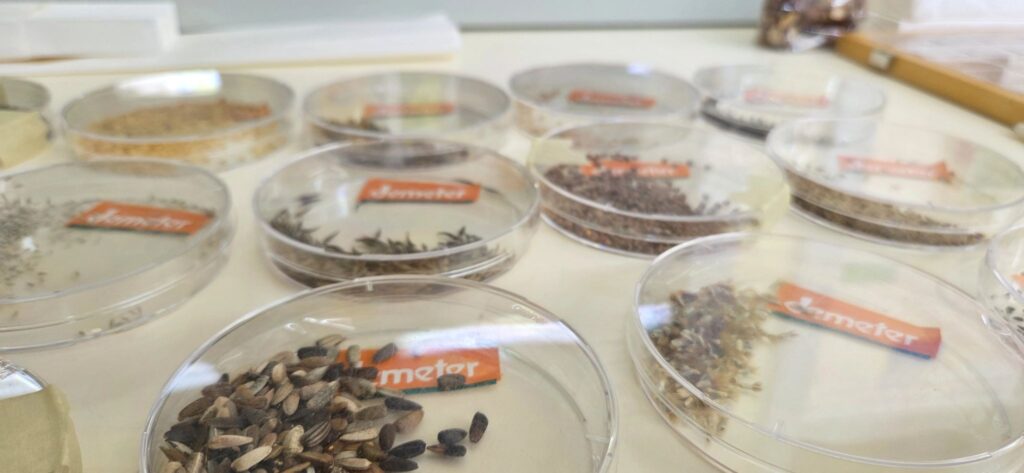From 29 September to 2 October 2025, LiveSeeding partners gathered in Einbeck, Germany, for the project’s Annual General Meeting (AGM25). Hosted by KWS and Bingenheimer Saatgut AG, with support from Kultursaat e.V., the three-day meeting brought together experts from across Europe to plan the final phase of the project and ensure the long-term impact of its results on Europe’s organic seed sector.
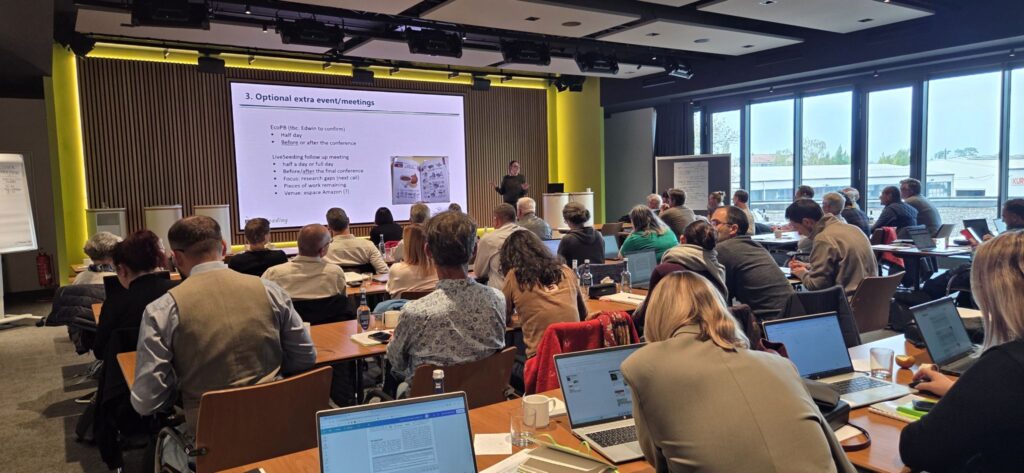
Strategic discussions and collaborative workshops
The meeting opened with a visit to KWS Group, where participants explored innovations in seed pelleting, the regulatory landscape, and the role of emerging biotechnologies in sustainable seed development. Over the following three days, partners reviewed project progress, discussed upcoming deliverables, and developed strategies to strengthen Europe’s organic seed and breeding systems.
Interactive workshops focused on managing quality and diversity in organic heterogeneous material (OHM) seed, analysing cultivar evaluation case studies, and turning lessons learned into concrete recommendations. Participants also examined organic seed supply and demand across Europe, working in groups to draft national strategies for countries including Switzerland, Poland, Portugal, and Spain. These discussions explored institutional support, integration into national action plans, and funding opportunities to promote 100% organic seed use in the EU over the next decade.
Building towards lasting impact
Day two concluded with a session on validation in Living Labs, where partners tested challenges and success factors from organic seed and breeding value chains against real-world experience. The final day focused on working for impact, aligning the consortium on how to translate project results into long-term benefits for farmers, seed suppliers, and policymakers.
The AGM concluded with a visit to Bingenheimer Saatgut AG and Kultursaat e.V., where partners toured trial plots, explored archives of cultivated varieties, and witnessed first-hand the diversity of crops shaping the future of organic farming in Europe.
The meeting highlighted the strength of collaboration across sectors and countries, showcasing how diverse experiences and expertise can collectively drive the transition toward resilient, biodiversity-based seed systems.
